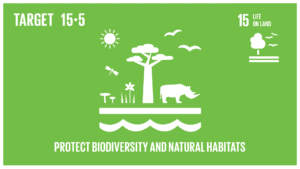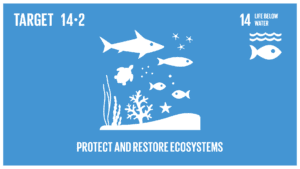Alcohol Production Degrades Farmland
A letter to the editor of The Seattle Times details how increased alcohol production will degrade farmland and jeopardize local food production and the eco-system.
The Metropolitan King County Proposed Ordinance 2018-0241, on updating development regulations for wineries, breweries and distilleries in unincorporated King County, will degrade farmland.
King County is the most populous county in the U.S. state of Washington. In 2018, the population was 2,233,163.
More alcohol production, adversely affects the SDGs
According to Barbara Lau writing to the editor of The Seattle Times if passed, local farmlands will be degraded for the benefit of the alcohol industry. It impacts rural and agricultural land throughout King County, locally grown food supply and salmon migrating through local rivers by degrading all agricultural production districts (Snoqualmie Valley, Green River Valley and Enumclaw) and destroying the Sammamish Valley farm and river ecosystem.
But the Sustainable Development Goals (SDGs) call for the protection of land and water resources. For example, SDG15 says to “Protect, restore and promote sustainable use of terrestrial ecosystems, sustainably manage forests, combat desertification, and halt and reverse land degradation and halt biodiversity loss.”
 Concretely, SDG15.5 calls for urgent action to reduce degradation of natural habitats and halt the loss of biodiversity. The case of King County shows how alcohol production is undermining this target of the SDGs.
Concretely, SDG15.5 calls for urgent action to reduce degradation of natural habitats and halt the loss of biodiversity. The case of King County shows how alcohol production is undermining this target of the SDGs.
Take urgent and significant action to reduce the degradation of natural habitats, halt the loss of biodiversity and, by 2020, protect and prevent the extinction of threatened species.”
Another SDG that is adversely affected by this ordinance is SDG14 “Conserve and sustainably use the oceans, seas and marine resources for sustainable development.”
 Concretely, SDG14.2 calls for measures to protect marine and coastal ecosystems. But the case of King County shows that alcohol production actually has adverse effects on river and marine ecosystems.
Concretely, SDG14.2 calls for measures to protect marine and coastal ecosystems. But the case of King County shows that alcohol production actually has adverse effects on river and marine ecosystems.
By 2020, sustainably manage and protect marine and coastal ecosystems to avoid significant adverse impacts, including by strengthening their resilience, and take action for their restoration in order to achieve healthy and productive oceans.”
The ordinance permits
- large (to 16,000 square feet) winery tasting rooms/bars on agricultural and rural land
- up to 160 parking spaces (on rural lots)
- dense event-center use and more than 1 million square feet of impervious surface built on the rural-area buffer designated to protect the Sammamish Valley farmland
- alcohol producers on large rural lots without fruit-origin restrictions.
This ordinance was proposed without an environmental impact study (EIS).
Kids can’t eat claret, and whales can’t eat merlot. We must preserve our farmland, rivers and fisheries, not give away their food and futures to the alcohol industry,” wrote Barbara Lau as per The Seattle Times.
